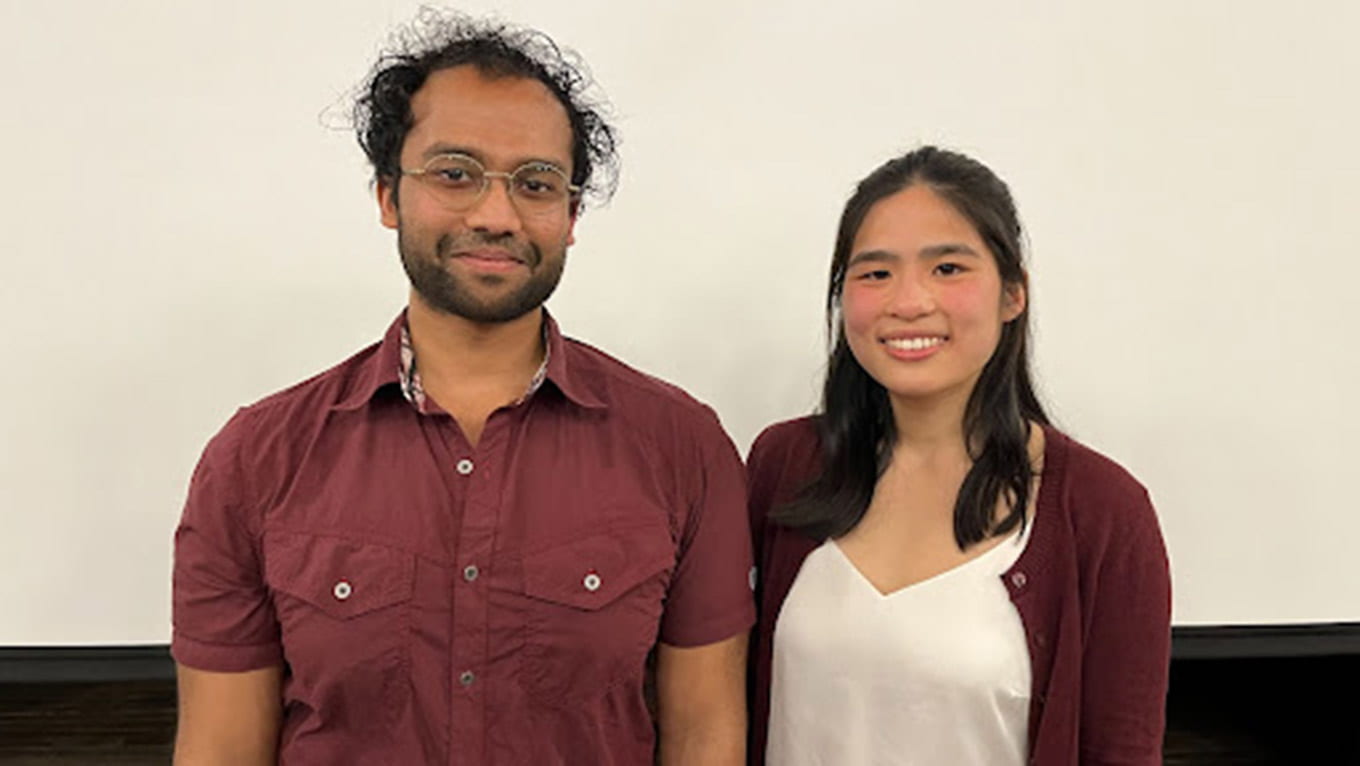Baskin School of Engineering graduate students Xian Chang and Samir Ghosh have been named as finalists in the preliminary rounds of the 2023 UCSC Grad Slam. They will compete against other UC Santa Cruz academic division finalists at the campuswide Grad Slam finale on March 4.
Grad Slam is an annual competition where graduate students present their research or artistic endeavor in just three minutes, while trying to make it accessible and engaging for a non-technical audience. The winner of the UCSC Grad Slam will advance to compete against graduate students from other University of California campuses at the UC-wide Grad Slam challenge in May.
Ten Baskin Engineering graduate students participated in the engineering preliminary round on February 14th, where they were judged on their ability to describe their theses in three minutes, and on the accessibility of their content, their delivery, and their ability to engage the audience.
Reducing bias in genomic analyses with pangenomes
Xian Chang, a biomolecular engineering Ph.D. student who works in Associate Professor of Biomolecular Engineering Benedict Paten’s lab, is working to reduce bias in genomic analyses through the use of pangenomes, a collection of genomic sequences from multiple individuals.
A standard practice in genomic analyses is to take a patient’s genome and compare it to the reference genome. This allows researchers to sequence genomes quickly, but there’s a major downfall to this process: 70% of the reference genome is made up of just one person’s genome, specifically a male from New York whose genetic material was sampled in the ‘90s.
Because this one person’s genome serves as the primary reference for all genomics, it is incredibly challenging to characterize large genetic differences in patients’ genomes when doing genomic analyses. Chang explained that locating genetic variants when doing analyses is extremely important as they correspond to biological differences and allow researchers to gain insight on patients’ risk factors for disease and how they would respond to treatment.
“In my lab, we’re working on a new way of looking at genomics, where we use a collection of genomes—known as pangenomes—to better represent genetic diversity and make it easier for us to make comparisons between the patient’s genome and the reference,” Chang said. “This concept has the potential to improve all of genomics.”
Chang, who signed up for Grad Slam to improve her public speaking skills, looks forward to sharing her research with an even larger audience at the March 4 finals.
Wildfires in Virtual Reality
Computational media Ph.D. student Samir Ghosh researches virtual reality (VR) and augmented reality (AR) applications for societal impact.
Ghosh’s Grad Slam topic draws from the Tech For Social Good project, “Visualizing Wildfire Impact,” where Ghosh and team are using VR tools to simulate wildfire impact to increase the accessibility of information around wildfire risk assessment, impact, and smoke spread.
Because of climate change, California will continue to experience extreme weather phenomena, which means longer and more intensive wildfire seasons. Ghosh’s research aims to convey how the use of VR and AR technologies can allow first responders and others to strategize and collaborate to help mitigate complex wildfire threats.
When asked what Ghosh is most excited about for the March 4 event, they said, “In higher education, we often get put into a silo where we only see perspectives from our discipline. I’m looking forward to encountering ideas from fellow graduate students in the arts, sciences, and the humanities. It is an honor to represent the Baskin School of Engineering and speak about this research.”
– SHARE THIS STORY –
You May Also Be Interested In
-

2025 Dean’s Awards highlight outstanding Baskin Engineering undergraduate research in AI, cybersecurity, biomedicine, and more
-

Baskin Engineering students sweep SC Launchpad 2025 awards in technology and social impact categories
-

First annual UC Open Summit highlights open source innovation in the UC system

